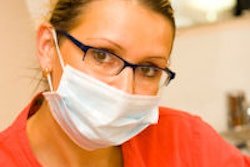A bill approved February 13 by the Kansas House Health and Human Services Committee would make several changes to state law to allow dental hygienists to provide more types of care to underserved patients.
Among other things, HB 2631 would add a new class of dental hygienist who would be able to perform more procedures than currently allowed, including certain types of temporary fillings, smoothing chipped teeth, adjusting dentures, and applying local anesthetics, according to a story by the Kansas Health Institute (KHI) news service.
Currently, hygienists in Kansas are allowed to provide preventive care such as cleanings and fluoride treatments in a dentist's office, according to KHI. If they want to see patients in nursing homes, senior centers, safety-net clinics, jails, schools, or other locations where access to dental care is limited, they're required to have an extended-care permit.
There are two types of permits:
Type I allows hygienists to work with children outside a dentist's office. The permit requires 1,200 hours of experience. There are now 52 hygienists with a type I permit, according to KHI.
Type II allows hygienists to work with patients older than age 65. The permit requires 1,800 hours of experience. There are now 96 hygienists with a type II permit.
HB 2631 would create a third type of permit that would allow hygienists to work outside a dentist's office with both children and patients older than age 65 and would expand the list of procedures they could perform. The new permit would require 2,000 hours of experience and completion of new coursework to be approved by the Kansas Dental Board.
The bill would also do the following:
Require the Kansas Board of Regents to seek additional openings for Kansas students at the University of Missouri-Kansas City School of Dentistry. Graduates would be required to provide dental care in underserved areas of Kansas for at least four years.
Establish a volunteer dental license for retired dentists who want to provide care to poor or underserved populations.
Expand the locations where charitable dental services could be performed to include dentists' offices and locations that host charity programs. The new locations would be sanctioned individually by the Kansas Department of Health and Environment.
The bill, which originated in the House committee, will now go to the House floor for consideration.



















